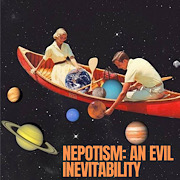- Renaissance Robot
- Oct 10, 2010
-

Bite my furry metal ass
|
Quotin this in full for the new page because it really is very good and nails down some vague feelings I've had about just what in the gently caress is going on in the government right now.
Got a link Zephro? I'd like to share this places
A Pro Read
What are they after?
William Davies writes about the Tory Brexiteers
When historians examine Britain’s departure from the European Union, one of the things that will puzzle them is the behaviour of the Conservative Party. Thanks to copious demographic and geographical analysis, we are already in a position to make sense of the referendum result itself. But it remains difficult to grasp how the Tories could effectively have taken what was to everyone else a fringe issue and used it to attack the interests they had until very recently represented: the City of London, big business, the Union, even Whitehall.
To paraphrase Neil Kinnock, how did we end up in the grotesque chaos of a Conservative government – a Conservative government – setting about the seemingly deliberate demolition of the United Kingdom and its economy? From a Tory perspective, things must have reached a sorry pass when the sole voice speaking up for the Union belongs to Arlene Foster. However much energy the Leave campaign put into stirring up nationalist and anti-immigration sentiment, it is hard to see the Westminster Brexiteers as nationalists when they show so little regard for the integrity of the UK or its governing institutions. If the economic forecasts are remotely accurate, Brexit will render England, let alone the United Kingdom of Great Britain and Northern Ireland, a hoax nation. The most regionally imbalanced nation in Europe will become even more so, as the North suffers yet further decline while the South-East holds on. Much of South Wales and Northern Ireland will exist in a parallel economic universe to London.
What do they want, these Brexiteers? The fantasies of hardliners such as Liam Fox, Daniel Hannan and Jacob Rees-Mogg are based on dimly learned lessons from British history. The mantra of ‘Global Britain’ resurrects an ideal of laissez-faire from the era of Manchester cotton mills and New World slavery. Discussing the range of Brexit options at a Tory Conference fringe event in October, the former Brexit minister David Jones concluded: ‘If necessary, as Churchill once said, very well then, alone.’ This is the sort of nostalgia Stuart Hall warned against as early as the 1970s, and which Peter Ammon, the outgoing German ambassador in London, identified recently when he complained that Britain was investing in a vision of national isolation that Churchill had played up (and vastly exaggerated) in his wartime rhetoric.
Do they even believe the myth, or is it an expedient way of bashing opponents while pursuing some ulterior goal? Historical re-enactment may be fine for the Daily Mail and the grassroots, but it doesn’t seem a strong enough motivation to support a professional political career. We need to know not just what kind of past the Brexiteers imagine, but what kind of future they are after. One disconcerting possibility is that figures such as Fox and Rees-Mogg might be willing to believe the dismal economic forecasts, but look on them as an attraction.
This isn’t as implausible as it may sound. Since the 1960s, conservatism has been defined partly by a greater willingness to inflict harm, especially in the English-speaking world. The logic is that the augmentation of the postwar welfare state by the moral pluralism of the 1960s produced an acute problem of ‘moral hazard’, whereby benign policies ended up being taken for granted and abused. Once people believe things can be had for free and take pleasure in abundance, there is a risk of idleness and hedonism. In the United States, this fear was expressed in the cultural conservatism of the Nixon era, during which moral opprobrium was visited on welfare claimants and feckless liberals. The focus was on race and gender: in the conservative imaginary, compassion would be exploited in the economic realm by black women, and in the judicial realm by black men. In Britain, there was more emphasis on the language of economics, specifically the ‘supply side’ idea that the interests of investors and entrepreneurs were paramount. As the theory behind Thatcherism had it, government services shrink everybody’s incentives to produce, compete and invest. They reduce the motivation for businesses to deliver services, and ordinary people’s desire to work. Toughness, even pain, performs an important moral and psychological function in pushing people to come up with solutions.
This style of thinking drove Thatcher through the vicious recession of the early 1980s. It was encapsulated by Norman Tebbit in his conference speech in 1981, often misquoted: ‘I grew up in the 1930s with an unemployed father. He didn’t riot. He got on his bike and looked for work, and he kept looking till he found it.’ That would imply that economic hardship should produce a more mobile population, and perhaps further abandonment of deindustrialised regions. A more interventionist version of such thinking appeared with the development of ‘workfare’ programmes by the Clinton and Blair governments of the 1990s, which sought to repurpose the welfare state as a means of boosting claimants’ ‘employability’ as well as their efforts to find work. Under workfare schemes, benefits were either paid to those already in work in the form of ‘tax credits’, or made conditional on enrolment in training programmes and constant job-hunting. The old British idea of the ‘dole’ (or in America of ‘welfare’), as something that was an alternative to work, was quickly eradicated. And there was a new iteration under David Cameron and George Osborne, in the form of austerity. The hypothesis of ‘expansionary fiscal contraction’, touted by Osbornites during the first years of the coalition government, is that cuts to public spending can lead to economic growth, by creating more opportunities for the private sector to invest. As most economists predicted, the hypothesis turned out to be false, but thanks partly to the workfare policies left behind by New Labour, levels of unemployment under austerity didn’t reach those of the Thatcher recession, and Theresa May’s government now boasts the lowest unemployment rate since the mid-1970s. An alternative perspective on that achievement is that hardship has forced people into worse jobs, demanding fewer skills and lower capital investment, so that Britain’s productivity growth has stalled to a degree not seen since the Industrial Revolution. That is what happens when work is framed as a moral duty, to be engaged in at all costs.
UNLOCK THE LRB SITE FOR 24 HOURS. ...and enjoy 24 hours of free access to the entire LRB archive. Email address:
Enter your email address
Register Now
The fear of ‘moral hazard’ produces a punitive approach to debtors, be they households, firms or national governments, the assumption being that anything short of harshness will produce a downward spiral of generosity, forgiveness and free-riding, eventually making the market economy unviable. Osborne liked to claim (against all the evidence coming from the bond markets) that if Britain kept borrowing, lenders would lose trust in the moral rectitude of the government and interest rates would rise. Gratification must be resisted. Pain works. Only pain forces people to adapt and innovate. In practice that may mean all sorts of things: migrating, reskilling, sacrificing weekends or family time, selling property, the ‘gig economy’ and so on. The productiveness of pain is a central conservative belief, whose expression might be economic, but whose logic is deeply moralistic.
There seems little doubt that for many of Thatcher’s followers the free-market experiment hasn’t gone far enough. As long as there is an NHS, a welfare state and a public sector that is more European than American in scale, we will never truly discover what the British people are made of, because they will never be forced to find out. Steve Bannon, the former Trump strategist, has often voiced the opinion that America’s only hope of moral cleansing lies in war. Tory Brexiteers tend not to go that far, but they may well be holding out for a milder version of the same idea, an extreme of economic hardship that means government is no longer capable of picking up the pieces. No wonder families in County Durham or the Welsh Valleys have experienced multiple generations of unemployment, they argue: there’s been adequate unemployment benefit. The estimated £80 billion hit to the public finances caused by Brexit might change that. And that’s before we take up the suggestive comment lurking in the official forecasts that ‘leaving the European Union could provide the UK with an opportunity to regulate differently across social, environmental, energy, consumer and product standards.’
The optimistic version of this story is that it’s only when the chips are down we discover what people are truly capable of. Brexit might reveal reserves of courage and innovation that have lain dormant for decades, held back by the interferences of bureaucracy and public spending. And if it doesn’t? Well, then the truth is laid bare. Perhaps that will be the moment for a more heroic form of political leadership to rise from the ashes. Several prominent Tory Brexiteers, including Iain Duncan-Smith and Steve Baker, have military backgrounds. As with the Second World War, Brexit will perform an X-ray of our collective moral fibre. Remainers love facts, but are afraid of the truth.
This is, I suspect, as close to a Conservative ideology of Brexit as exists. At the very least, it has some internal coherence, whatever it may lack in detail regarding the future. But we shouldn’t exaggerate the coherence of Tory Brexit. The situation is a mess, one aspect of which is the frightening lack of responsibility displayed by its main instigators. The political weather in Westminster has been made over the past two years by Boris Johnson, a man whose only apparent goal is to make the political weather. Senior Leave campaigners, such as Dominic Cummings, admit they would have lost the referendum had he not leapt on board. Johnson approaches public life as a game in which he commits sackable offences as a way of demonstrating his unsackability. The office of foreign secretary in this administration is treated as a leash to constrain someone who would otherwise cause more trouble to the prime minister elsewhere.
Johnson is as close as British politics has to a Trump problem, and his seniority suggests that Trumpism has permeated our political culture more deeply than we like to admit. Trump may be a more acute case, but both men compel all around them to react to their idle remarks, mistakes and fantasies. On the day President Macron visited Britain, to take just one recent example, Johnson declared that he wanted to build a bridge across the Channel, and that became the headline. Trump and Johnson are ‘real-time’ politicians: they dominate the rolling news cycle, and devalue the painstaking aspect of politics in the process. Psychologically, they are inverses: Trump has no sense of humour, where Johnson sees the funny side of everything. Johnson is said to strut around Whitehall asking civil servants if they’ve found his £350 million a week yet: ‘I know it exists because it was written on my bus.’ Ha ha. After his vacuous Valentine’s Day speech on Brexit, most pundits agreed he had overplayed his hand, but that’s always been part of his brand. No doubt men such as Johnson and Trump have always existed, but healthy political systems have ways of keeping them away from the highest echelons of power.
For all his idiosyncrasies, Johnson typifies something about contemporary conservatism, which might best be understood biographically. The cultural forces shaping the new conservatism resolve in a particular stereotype: men born between the mid-1960s and the early 1970s, with some constellation of expat backgrounds, famous fathers and first careers in the media. All four things apply to Johnson, but a Venn diagram of these various characteristics would also include Michael Gove, Douglas Carswell, Daniel Hannan and Jacob Rees-Mogg. The result of these disparate characteristics is a comfortable familiarity with the myths and rituals of the British state, but a blasé indifference to the impact of policy. As Ian Jack pointed out in these pages last year (15 June 2017), the expat perspective seems to play an important role in the psychology of Brexit. Hannan and Carswell both had expatriate childhoods. Astute observers, such as the writer Gary Younge, have argued that Brexit rests more on an imperial imaginary than on a national one. But as much as anything the expat is in a position to see ‘Great Britain’ from a perspective other than that of government. Such things as statistics, macroeconomics and policy itself fade into insignificance compared to the way the nation is seen from afar, alongside its historical rivals. Ignore ‘official Treasury forecasts’ and focus on the atlas instead.
UNLOCK THE LRB SITE FOR 24 HOURS. ...and enjoy 24 hours of free access to the entire LRB archive. Email address:
Enter your email address
Register Now
In contrast to the populist message of Ukip, which is all about British blood, British soil and how the elites have betrayed them, Tory Brexitism can have a strange flippancy about it. In some cases, you wonder if they really mean it or if it’s just another attention-seeking strategy. Like Johnson, Rees-Mogg was treated as a joke until suddenly he was being discussed as a potential Conservative leader. Then there are their allies who write in the Spectator and specialise in exploring the sliver of political space between irony and bigotry. Among them is Toby Young, who originally found fame as the butt of his own joke with his memoir How to Lose Friends and Alienate People (2001). The game is a quest for attention, and humorous transgression is the key skill in winning it. Another name for it is ‘trolling’.
Armchair psychoanalysts can muse on what responsibility the high-profile fathers of these men have for cultivating their sons’ delinquency and need for attention. It is surely a safer psychological force confined to op-ed pages than unleashed on politics, especially where historic constitutional reform is at stake. But the boundary separating the conservative press from the Conservative Party has in any case been slowly dissolving, with the Times (Gove’s former employer, which currently boasts two Conservative peers, Lords Finkelstein and Ridley, on its comment team) occupying a particularly porous position on the border between the two. In January, Young came within a Twitter-storm of being appointed to the new Office for Students, which will regulate universities in England and Wales. The reality is that in addition to the ideological and cultural forces behind Brexit, it is also happening thanks to the recklessness of individuals who see public life as an opportunity to show off. This is the more fundamental sense in which Westminster is being permeated by Trumpism.
These men’s contemporaries on the centre-left had the existential fortune of beginning their careers in tandem with Blairism. The likes of Ed Balls, David Miliband and Andy Burnham threw themselves into the details of policy design and implementation, with a level of technocratic commitment that would eventually provoke populist derision from both left and right. No doubt this clique contained some planet-sized egos too, but one thing that can be said for the New Labour generation is that they saw politics as a serious business, requiring hard, serious work. Among Tory Brexiteers, by contrast, ignorance and a lack of effort is taken almost as a mark of distinction – how else to explain David Davis? Having spent so long witnessing the Blairite policy machine churn out evidence and evaluations, year after year, with impeccable economic logic, it’s as if they have abandoned such dull, humourless pursuits altogether. Hence their disdain for the Treasury and for the man, ‘Spreadsheet Phil’ Hammond, who runs it.
*
In his book Propaganda, published in 1928, Edward Bernays, the creator of modern public relations (and Sigmund Freud’s nephew), expressed his optimism that expert communication strategies could protect democracy from the psychological excesses of mass society (it is sometimes forgotten that Bernays saw ‘propaganda’ as a positive and civilising force). Modern democracy would have to draw on the most advanced techniques of communication and persuasion, just as modern business had done with advertising, if the masses were to be satisfied with the policies and leaders that were available.
Bernays believed that politicians struggle to understand the importance of communication strategy, because they never have to struggle hard enough to win public attention. Unlike businesses, which have to work hard to attract publicity, political parties and politicians get attention from the media regardless of how well thought-out their message is. Bernays believed there was a risk that mass democracies would come undone unless politicians gave more thought to how they presented themselves in the media. Recent history suggests that he was worrying about the wrong thing. The professionalisation of politics and the rise of spin led to the opposite problem: politicians began to think too carefully about how they presented themselves in the media. The image management of the Blair and Clinton era smacked of inauthenticity, a charge that was later levelled at mainstream political parties in general, leading to the populist upheavals of the past few years.
But there is a further risk lurking in Bernays’s analysis, which he seemingly didn’t anticipate. If professional politicians have an unearned advantage over others when it comes to attracting public attention, there is a danger that politics comes to attract people who only want public attention – such as Johnson – and others who only know how to exploit it, such as Rees-Mogg. While Rees-Mogg may be a firm believer in the Victorian moral vision of Brexit, there can be no denying that his currently elevated status is largely down to the fact that he is recognisable and provides good media ‘content’. When the media report his latest comments, it’s because he is someone whom everyone recognises from the media. Everything he says or does must be calculated to ensure that this remains the case. As any troll understands, wit and disruption are the best tactics for succeeding in the ‘attention economy’.
UNLOCK THE LRB SITE FOR 24 HOURS. ...and enjoy 24 hours of free access to the entire LRB archive. Email address:
Enter your email address
Register Now
It would be almost reassuring to know that there was an ideology of Tory Brexit that was driving things, just as there is an ideology known as ‘Lexit’ which views the EU as an anti-democratic neoliberal institution that must be resisted. But for the generation who entered public life in the 1990s, after the ‘end of ideology’, there were only two choices: to devote oneself with immense earnestness to the nitty-gritty of policy and economics, or to revel in the freedom of symbolism and storytelling, as journalists, PR professionals and pranksters. Political careers came later. Britain’s misfortune is that matters of the greatest seriousness are now in the hands of basically unserious people
Y'all should read the pro read
|




























